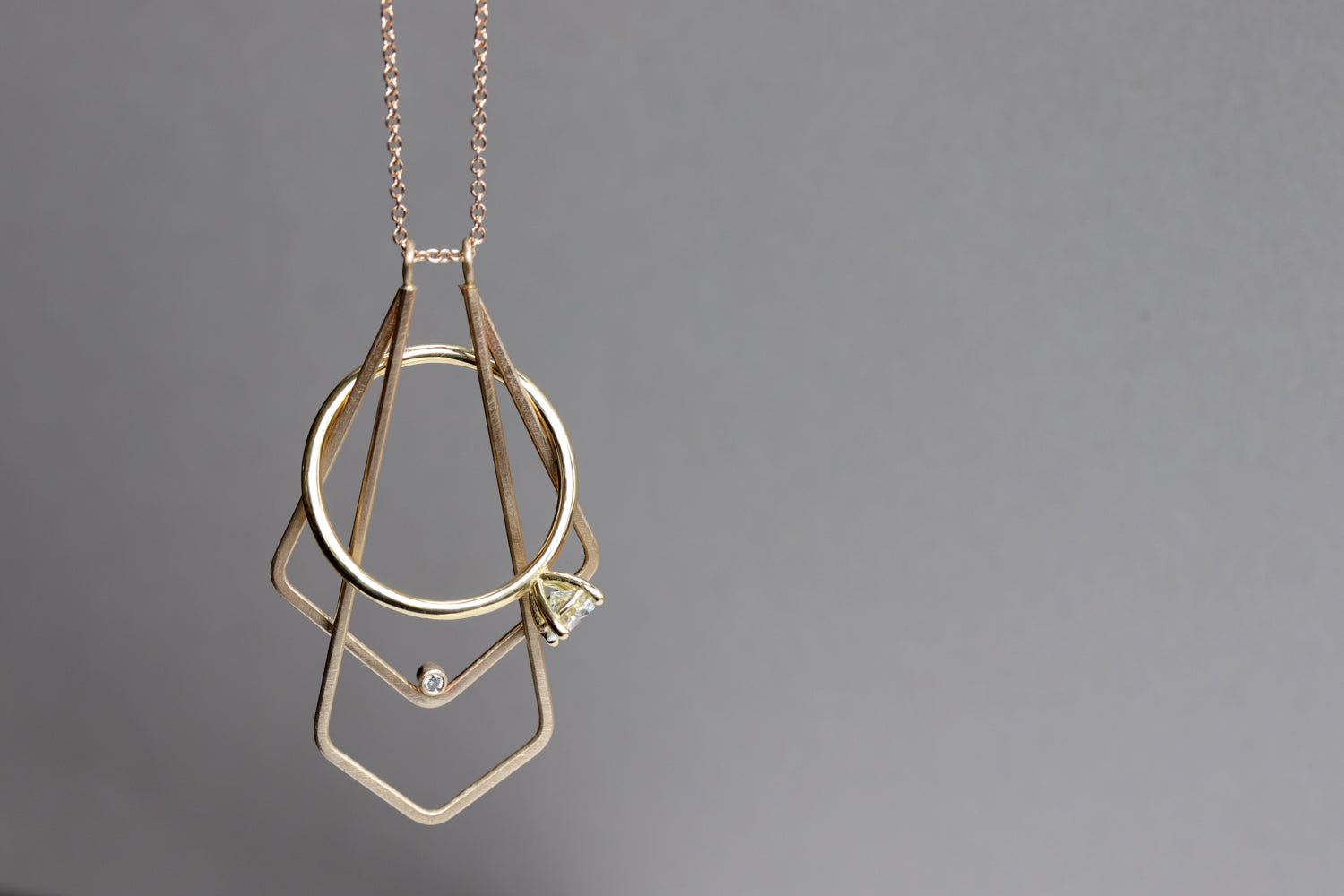Getting The Right Ring Size

Getting The Right Size
Ring size can be tricky. Finger size changes depending on season, weather, time of day, diet, medication, and more. Then the width and shape of the ring also affect fit, which is why it's common for a wedding or engagement ring to be resized at least once to get the size dialed in.
Things That Affect Ring Size
Before you get sized, it helps to understand what affects your finger size:
- Fingers are typically bigger in the morning, when you're hot, or have recently consumed a lot of salt or alcohol
- They shrink when you're cold or swimming in cold water
- They're bigger in the summer and smaller in the winter. That seasonal fluctuation can be anywhere from 1/4 to a full size difference
- Fingers can swell a lot when you sleep or fly
- Wider bands fit more snugly than narrow bands, so the width of the ring sizer affects the size. Generally, if sized with a narrow ring sizer, you'd want to size up 1/4 size for rings 5-6mm wide and 1/2 size for rings 7-8mm wide
- Bands with a flat interior fit tighter and are harder to slide over the knuckle than bands with a comfort-fit interior
- Ideally, you want to be sized with bands that are the same width and fit as the ring you're getting
How to Get Sized
Professional sizing is best. Get sized by professionals using metal ring sizers before ordering a ring. We recommend getting sized several times by different people on different days so you can come up with an average.
We do not recommend printable ring size charts. They're wildly inaccurate. A piece of paper or string conforms to the shape of your finger (which isn't round) in a way that a metal ring won't. If you wrap a string around your finger and then measure it, you're likely to stretch it differently when wrapping than when measuring on a ruler. Even a fraction of a millimeter off will make the ring too big or too small.
Can't get to a store? If you don't want to or can't go into a store to get professionally sized, we sell a ring size gauge. This is more accurate than other home methods, but it works best for rings without stones, as those are easier to resize and can be resized further than rings with stones.
Ordering a ring that's hard to resize? Rings that have stones flush-set into the band are much more limited in how much they can be resized (typically about 1/2 size), and some can't be resized at all. For our clients ordering rings with flush-set stones or rings that can't be resized, we can send brass sizing rings that are close in width to the ring we're making for you. We send them in the size you think you are, as well as above and below that. They won't fit exactly like the ring you're ordering, but this is a much better way to dial in the size before making a ring that's hard to resize or can't be resized at all.
How We Determine the Size of a Ring
A ring is sized by measuring where the bottom of the ring lines up, or where the ring touches the wider part of the mandrel. The ring in this photo is a hair smaller than a size 6. If this were a wide band, the top of the ring might line up around 5.5 or 5.25, but it's the bottom leading edge of the ring that determines the size. If it's a comfort-fit band, it's sized from the narrowest part of the inside of the band, so typically the leading edge of the ring will sit just below the size on the mandrel.

Another way to determine a ring size is to use calipers to measure the inside diameter, which is the most accurate method for sizing a finger and a ring. This is a much, much more precise way to measure a ring, since ring sizes aren't standard. WHAT!? Ring sizes aren't standard? That's right, it's a lot like the size of jeans and varies from one manufacturer to another.
Our Resizing Policy
We offer one free resizing per ring, on band rings without stones, up to 1/2 size (larger or smaller), within one year of receiving the ring. You're only responsible for shipping both ways. Beyond that, rings can be resized for a fee. Be sure to contact us before sending a ring back for resizing.
Taking your ring to a local repair shop? You can also have your ring resized locally; however, you need to be very explicit about the texture, finish, and whether it's plated. In the commercial jewelry industry, it's standard to make everything shiny and rhodium-plate white gold. So that matte wood texture band you got from us? They might just polish it smooth. That's why, if you're going to take your jewelry to a repair shop, it's always a good idea to email the maker first to get the right instructions to give to the shop.

